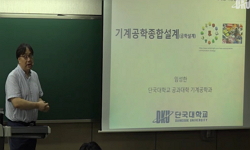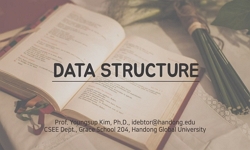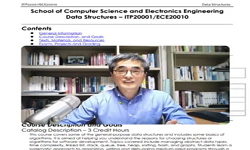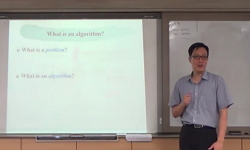In traditional machine, equipment and devices design, technical solutions are practically independent, thus increasing designs cost and complexity. Overcoming this situation has been tackled just using designer’s experience. In this work, a product ...
http://chineseinput.net/에서 pinyin(병음)방식으로 중국어를 변환할 수 있습니다.
변환된 중국어를 복사하여 사용하시면 됩니다.
- 中文 을 입력하시려면 zhongwen을 입력하시고 space를누르시면됩니다.
- 北京 을 입력하시려면 beijing을 입력하시고 space를 누르시면 됩니다.
https://www.riss.kr/link?id=A103789612
-
저자
Israel Aguilera Navarrete (CICATA-Instituto Politécnico Nacional) ; Alejandro A. Lozano Guzmán (CICATA-Instituto Politécnico Nacional)
- 발행기관
- 학술지명
- 권호사항
-
발행연도
2013
-
작성언어
-
- 주제어
-
등재정보
KCI등재,SCIE,SCOPUS
-
자료형태
학술저널
-
수록면
3371-3379(9쪽)
-
KCI 피인용횟수
3
- DOI식별코드
- 제공처
-
0
상세조회 -
0
다운로드
부가정보
다국어 초록 (Multilingual Abstract)
In traditional machine, equipment and devices design, technical solutions are practically independent, thus increasing designs cost and complexity. Overcoming this situation has been tackled just using designer’s experience. In this work, a product platform complexity reduction is presented based on a matrix representation of technical solutions versus product properties. This matrix represents the product platform. From this matrix, the Euclidean distances among technical solutions are obtained. Thus, the vectorial distances among technical solutions are identified in a new matrix of order of the number of technical solutions identified. This new matrix can be reorganized in groups with a hierarchical structure, in such a way that modular design of products is now more tractable. As a result of this procedure, the minimum vector distances are found thus being possible to identify the best technical solutions for the design problem raised.
Application of these concepts is shown with two examples.
참고문헌 (Reference)
1 L. Chen, "two-phase method for decomposition of complex design problems" 127 (127): 184-195, 2005
2 S. Dash, "luster analysis" I.A.S.R.I 2007
3 "http://books.google.com.mx/books?hl=es&lr=&id=PKJu- QjSaHp0C&oi=fnd&pg=PR9&dq=product+platform+compl exity+reduction&ots=nseIF7bIxS&sig=T2wAdWBHh-- i4pXl8TVZ1cbwGqo"
4 X. Du, "Understanding customer satisfaction in product customization" 31 : 396-406, 2006
5 E. R. Davidson, "The iterative calculation of a few of the lowest eigenvalues and corresponding eigenvectors of large real-symmetric matrices" 17 (17): 1975
6 J. M. Morgan, "The Toyota product development systems" Productive Press 2006
7 M. H. Meyer, "The Power of product platforms" Free Press 1997
8 K. Fujita, "Task structuring toward computational approaches to product variety design" ASME 1997
9 G. Carlsson, "Some ideas for formalizing clustering schemes" Stanford University California
10 F. Franceschini, "Rating scales and prioritization in QFD" 16 : 85-97, 1999
1 L. Chen, "two-phase method for decomposition of complex design problems" 127 (127): 184-195, 2005
2 S. Dash, "luster analysis" I.A.S.R.I 2007
3 "http://books.google.com.mx/books?hl=es&lr=&id=PKJu- QjSaHp0C&oi=fnd&pg=PR9&dq=product+platform+compl exity+reduction&ots=nseIF7bIxS&sig=T2wAdWBHh-- i4pXl8TVZ1cbwGqo"
4 X. Du, "Understanding customer satisfaction in product customization" 31 : 396-406, 2006
5 E. R. Davidson, "The iterative calculation of a few of the lowest eigenvalues and corresponding eigenvectors of large real-symmetric matrices" 17 (17): 1975
6 J. M. Morgan, "The Toyota product development systems" Productive Press 2006
7 M. H. Meyer, "The Power of product platforms" Free Press 1997
8 K. Fujita, "Task structuring toward computational approaches to product variety design" ASME 1997
9 G. Carlsson, "Some ideas for formalizing clustering schemes" Stanford University California
10 F. Franceschini, "Rating scales and prioritization in QFD" 16 : 85-97, 1999
11 T. Simpson, "Product platform design: method and application" 13 : 2-22, 2001
12 R. S. Farrell, "Product platform design to improve commonality in custom products" 14 : 541-556, 2003
13 D. Zhihuang, "Product platform design through sensitivity analysis and cluster analysis" 18 : 97-113, 2007
14 T. W. Simpson, "Product platform design and customization: Status and promise" Cambridge University Press 18 : 3-20, 2004
15 J. Jiao, "Product family design and platform-based product development: a state of the art review" 18 : 5-29, 2007
16 R. Fellini, "Platform selection under performance bounds in optimal design of product families" 127 (127): 524-535, 2005
17 F. Gao, "Module-scale-based productplatform planning" 20 : 129-141, 2009
18 J. S. Arora, "Introduction to optimum design" ELSEVIER 2004
19 T. Simpson, "From user requirements to commonality specifications: an integrated approach to product family design" 1-13,
20 L. Elmore Kimberly, "Euclidean distance as a similarity metric for principal component analysis" 129 : 540-549, 2001
21 G. Pahl, "Engineering Design, vol. I" Springer 2007
22 D. Neufeld, "Development of a flexible mdo architecture for aircraft conceptual design" 2008
23 M. Moreno, "Developing product platforms: analysis of the development process" 20 : 617-630, 2000
24 A. Ericsson, "Controlling design variants, vol. 1" Society of manufacturing Enginners 1999
25 G. Carlsson, "Characterization, stability and convergence of hierarchical clustering methods" 55 : 2009
26 S. Shooter, "Building a better ice scraper a case in product platforms for the entrepreneur" 18 : 159-170, 2007
27 K. Hölttä-Otto, "Analyzing module commonality for platform design using dendrograms" 19 : 127-141, 2008
28 L. Chen, "Analysis of decomposability and complexity for design problems in the context of decomposition" 127 (127): 545-557, 2005
29 K. M. Seung, "A platform identification method for service family design using a process model and a clustering method, In Mass Customization, In Springer Series in Advanced Manufacturing" Springer London 151-170, 2011
30 J. Liu, "A multi-aspect simulation system for flexible aircraft wing assembly" Springer Berlin 5315 (5315): 2008
31 S. Moon, "A methodology for knowledge discovery to support product family design" 174 : 201-218, 2010
동일학술지(권/호) 다른 논문
-
Comparison of all-atom and coarse-grained normal mode analysis in the elastic network model
- 대한기계학회
- Mingwen Hu
- 2013
- KCI등재,SCIE,SCOPUS
-
- 대한기계학회
- Kyoung-Ku Ha
- 2013
- KCI등재,SCIE,SCOPUS
-
- 대한기계학회
- Jinil Kim
- 2013
- KCI등재,SCIE,SCOPUS
-
Novel mathematical approaches for analyzing time dependent creep deformations in reinforced metals
- 대한기계학회
- Vahid Monfared
- 2013
- KCI등재,SCIE,SCOPUS
분석정보
인용정보 인용지수 설명보기
학술지 이력
| 연월일 | 이력구분 | 이력상세 | 등재구분 |
|---|---|---|---|
| 2023 | 평가예정 | 해외DB학술지평가 신청대상 (해외등재 학술지 평가) | |
| 2020-01-01 | 평가 | 등재학술지 유지 (해외등재 학술지 평가) |  |
| 2012-11-05 | 학술지명변경 | 한글명 : 대한기계학회 영문 논문집 -> Journal of Mechanical Science and Technology |  |
| 2010-01-01 | 평가 | 등재학술지 유지 (등재유지) |  |
| 2008-01-01 | 평가 | 등재학술지 유지 (등재유지) |  |
| 2006-01-19 | 학술지명변경 | 한글명 : KSME International Journal -> 대한기계학회 영문 논문집외국어명 : KSME International Journal -> Journal of Mechanical Science and Technology |  |
| 2006-01-01 | 평가 | 등재학술지 유지 (등재유지) |  |
| 2004-01-01 | 평가 | 등재학술지 유지 (등재유지) |  |
| 2001-01-01 | 평가 | 등재학술지 선정 (등재후보2차) |  |
| 1998-07-01 | 평가 | 등재후보학술지 선정 (신규평가) |  |
학술지 인용정보
| 기준연도 | WOS-KCI 통합IF(2년) | KCIF(2년) | KCIF(3년) |
|---|---|---|---|
| 2016 | 1.04 | 0.51 | 0.84 |
| KCIF(4년) | KCIF(5년) | 중심성지수(3년) | 즉시성지수 |
| 0.74 | 0.66 | 0.369 | 0.12 |






 KCI
KCI






